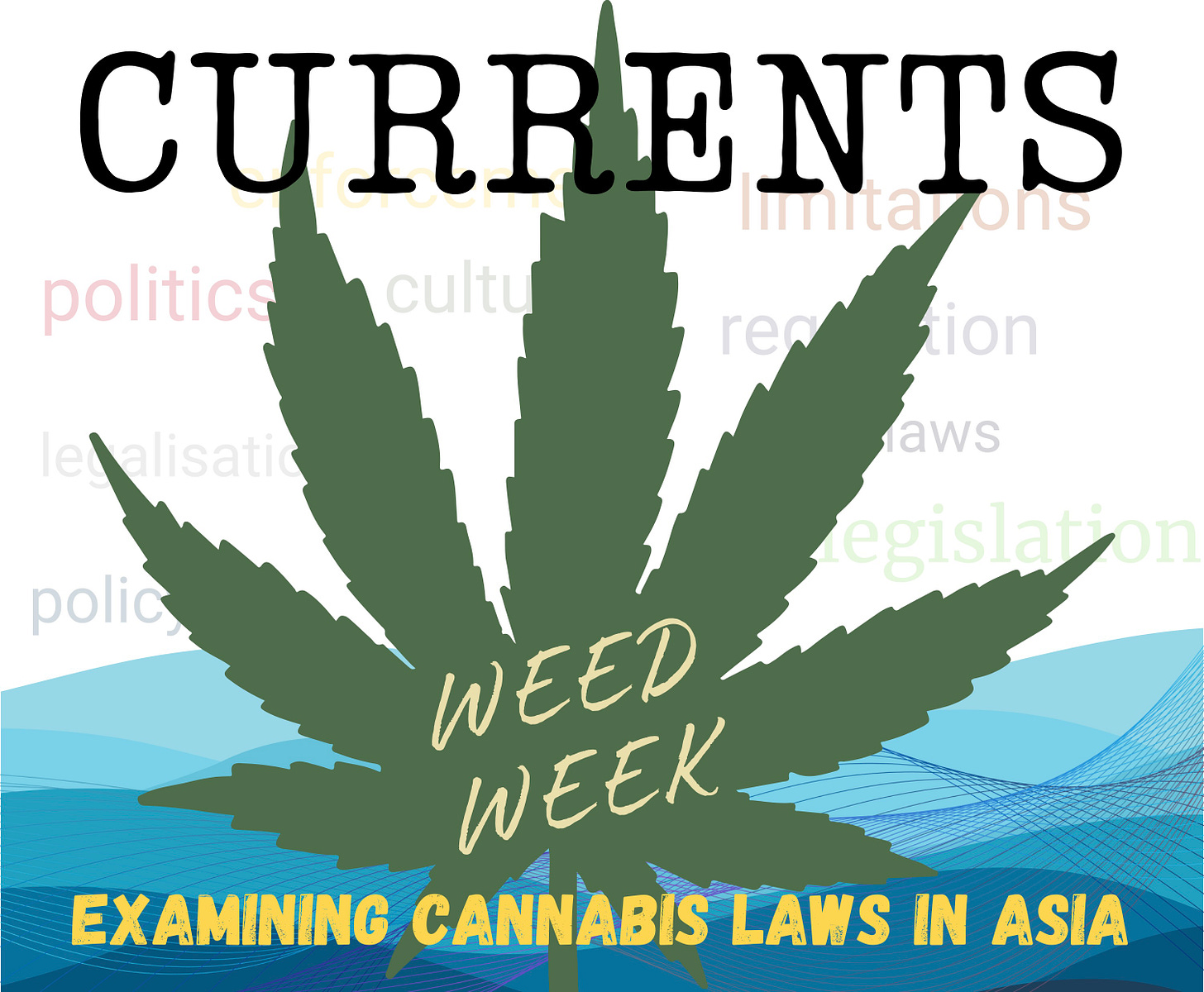PROMO: Weed Week – Exploring Cannabis Laws & Legislation in Asia
You don't have to be a massive nerd... but it helps
Some see it as a source of joy and relaxation. Others rely on it to alleviate medical issues like chronic pain, epilepsy or to help with cancer treatment. Then there are those who see it as a dangerous and addictive gateway drug that inevitably leads to harder narcotics, ruined lives and devastated societies.
Mention cannabis and you’ll get a range of wildly different reactions. But over the past decade or so, there’s been a gradual shift in attitudes towards weed in various places around the world. So far, 11 countries have either fully or partially legalised the drug, while dozens more have approved its use for medical purposes.
In 2022, Thailand effectively decriminalised weed after removing the cannabis flower from its narcotics list. Given the staunchly anti-drug attitudes of some of Thailand’s neighbours — multiple countries in Southeast Asia still retain the death penalty for drug offences, including cannabis trafficking — this move came as a big surprise to many.
So… What brought this on? What are the benefits and drawbacks of this policy change in Thailand, and is it likely to change back? What have been the challenges in countries that have decriminalised cannabis, and where might things go from here?
To explore these questions, the next three issues of Currents will focus on cannabis legislation, regulation, and Thailand’s experience.
Let’s be clear: conversations about drugs (and what’s to be done about them) often trigger sensitive and tricky debates — especially in Asia, where prohibitionist approaches still have a strong hold. In this series I want to present a reasoned and balanced approach to the topic, so if you’re hoping for something akin to Fear and Loathing in Las Vegas or a failed Judd Apatow script then let me say in advance, I’m sorry to disappoint.
This isn’t about whether the use of drugs is good or bad. It’s not about dictating what people’s values and attitudes should be. This is about opening up the discussion and hearing from those who are working for a change in public perception and state policy.
For the next two Sundays, Currents will be running podcast episodes featuring Thailand-based experts Kitty Chopaka, a cannabis legalisation activist and weed dispensary owner, and Gloria Lai, the Asia Regional Director for the International Drug Policy Consortium. Both Kitty and Gloria provide incredible insights and fascinating perspectives which are often overlooked. I’m thrilled I had the chance to speak to both of them.
Next Friday I’ll also be reviewing the book Weed Rules: Blazing the Way to a Just and Joyful Marijuana Policy, written by Boston University law professor Jay Wexler. Weed Rules delves into the complexity of regulation and enforcement — two crucial factors which need to be considered at even the most preliminary stages of decriminalising or legalising cannabis. The book covers the history of the drug war in the US, and, over the course of about 50 years, the changes that lead to the roll-out of cannabis legalisation in numerous states, while addressing the sort of nuanced discussions needed when considering implementation and regulation.
If you’re interested in this topic then I’d love to hear your thoughts. Feel free to leave a message in the subscriber chat, but other than that, I hope you enjoy this short series on a hotly debated topic.




